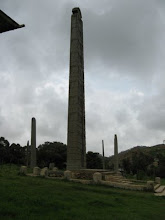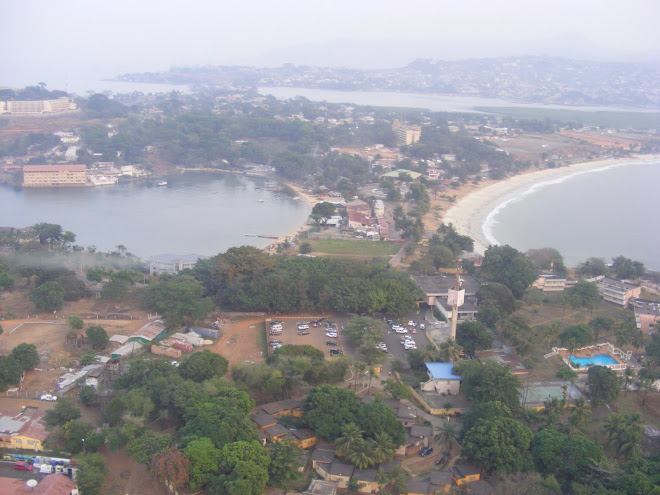
LONDON GUARDIAN AUGUST 7, 2001
GARDIAN OF LONDON AUGUST 7, 2001. AFRICAN PLAY BLOCKED BY VISA REFUSALS FIARCHRA GIBBONS ART CORRESPONDENT TUESDAY AUGUST 7 2001 THE GUARDIAN
KPUNDEH OR CRISIS
Search this site
African play blocked by visa refusals
Fiachra Gibbons, arts correspondent
Tuesday August 7, 2001
The Guardian
A play recommended to the Edinburgh Festival by the British army in Sierra Leone has had to be cancelled because the Home Office will not let the actors into the country.
The play, Kpundeh, which means Crisis, attempts to predict what will happen when the killing stops in Sierra Leone. It so impressed the World Bank after four sell-out performances at the British Council in Freetown that it paid for it to tour the war ravaged country. It was to have been the sole African representation at the Fringe's festival of world theatre at the Komedia St Stephen's theatre.
The troupe of 28 actors, dancers and musicians put on special performances for British troops, who have imposed a shaky peace since they were called in to back up government forces last year.
But despite the army's support, visas for the cut-down cast of 10 who were to perform in Edinburgh have been refused on the grounds that they might claim political asylum once they arrived.
Sierra Leone has one of the worst human rights records in the world, with both rebels and some government-allied militias using mass amputation as a tool of terror against civilians.
Inaju Ruben, the show's writer and director, has already lost £7,000, "a fortune in Sierra Leone", paying for his actors' accommodation during the festival, he said.
"I have a valid visa to come to Edinburgh but to what end if the world does not see our work? I am shattered. The voice of the people of Sierra Leone deserves to be heard. Our play is about hope, about how we can accept combatants back into their communities after the war, and it is being silenced.
"My actors are in despair about this. Two of them are now in hospital. This is our big chance to go to the greatest festival in the world. For years we have been dreaming of this."
Tim Hawkins, director of Komedia, said it was "shameful that something which the British army recommends cannot be seen in Britain. This says it all about our immigration policies."
In its letter of recommendation, the British army praised the show for "educating and sensitising the people of Sierra Leone with your accurate portrayal of the events of the past couple of years. We wish you success in taking this to a wider international audience...and are happy to recommend it".
The high commission in Freetown refused to comment on the decision, but a Home Office spokeswoman said officials looked at every case "very carefully before making a decision. There were clear guidelines that have to be followed, particularly in the case of somewhere like Sierra Leone."
The Edinburgh Fringe has also protested to the Foreign Office but has been told that the festival is likely to be over by the time the problem is sorted out.
Mr Ruben said he had given the high commission four months' notice of his intentions and had applied for the cast's visas well within the fortnight that officials said they needed to process the applications.
"We have done everything to satisfy them. They kept changing the goalposts, saying at one stage that they could not process our application until September, when the festival would be over. I have given personal guarantees that I will make sure everyone returns to Sierra Leone."
He said that officials had separated the actors during interviews and then claimed some of them had paid for a place in the company in order to claim asylum.
"It is absolute nonsense. If they had bothered to come to our performances when we invited them or even read the reviews, they would have seen that all of them have been part of the group for a long time. "
Pix By Maj. Ian Mattson





No comments:
Post a Comment